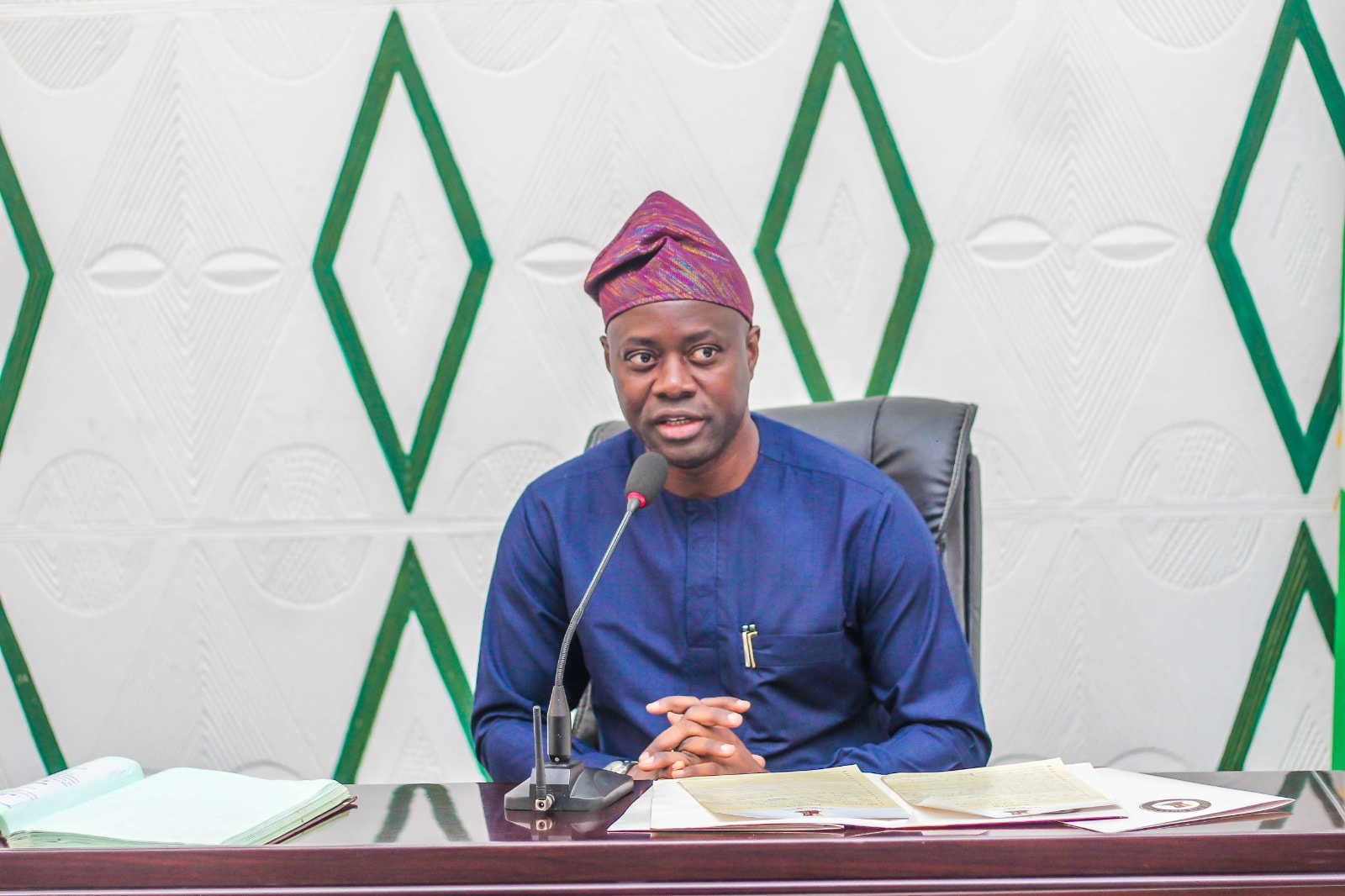Seyi Makinde, the Oyo State governor, on Tuesday, June 8, 2021, said fiscal federalism and devolution of powers remained the only ways to save Nigeria from the edge of imminent crises.
The governor, who maintained that true federalism is the future of democracy in the country, insisted that Nigeria must devolve powers to the federating units, especially the powers to control natural resources and the state security architecture, in order for it to avoid the path of destruction.
Makinde stated these at the International Conference Centre of the University of Ibadan yesterday during his keynote address at the maiden ‘Governor Seyi Makinde National Democracy Summit’
At the summit, with the theme: ‘The Future of Democracy in Nigeria’, the Governor of Ondo State, Rotimi Akeredolu, was represented by the Ondo State Attorney-General and Commissioner for Justice, Sir Charles Titiloye; former Governor of Edo State, Prof. Osariemen Osunbor and the Director-General of the Nigerian Institute of International Affairs, NIIA, Prof. Eghosa Osaghae, among others, spoke on the imperative of federalism.
Makinde said: “As we continue to deliberate on the future of democracy in Nigeria, let us remember that true federalism is the way forward. Restructuring the Nigerian state, and giving the federating units more powers is the route to economic prosperity.
“We are the Federal Republic of Nigeria, but our federalism exists only in name. Students of political history will tell you that what we have been practising is in fact a unitary system of government – where more powers are concentrated at the central government.
“There is so much power at the centre, and another thing that our political theorists will tell you is that by nature, a unitary system of government is better suited for small countries, maybe countries with flat ethnic nationalities.
“Nigeria is not a small country, and it’s very diverse. So, you can easily identify why we are experiencing developmental challenges across board. We are trying to fit a square peg into a round hole. For true federalism to thrive, the federating units should have more powers and autonomy. The legislature is also fighting for autonomy, which has shown that we have to devolve.”
He added that it has become imperative for the country to address the issue of devolution of powers along the two critical lines of power to control natural resources and power to control state security architecture.
Makinde maintained that when states are allowed to control their resources, they would have more funds to execute developmental projects, and the idea of going cap-in-hand to seek federal allocations would end.
According to him, “Once states are allowed to control their natural resources, the power dynamics will also change, as states will become more independent-minded and can also choose how to develop their natural resources and use them to attract investments to their states.”
On the need for states to have control over state security architecture, he said: “The prevailing security situation in Nigeria has shown how closely linked security is to development. Without a secure environment, all efforts to attract investments will be in vain. Nobody wants to put his or her money where they are not sure of making a profit.”
“One of the reasons why the South-western Nigeria Security Network, Amotekun, is recording success is because members of the corps are drawn from the locality. They know the terrain and so can gather needed intelligence. Also, they can be held accountable by the local people.”







